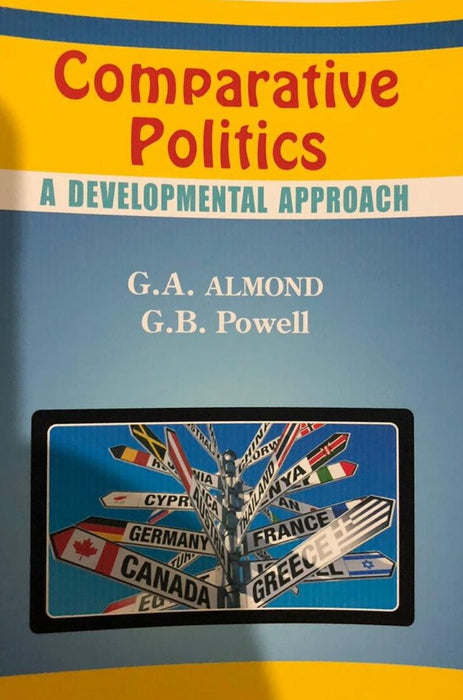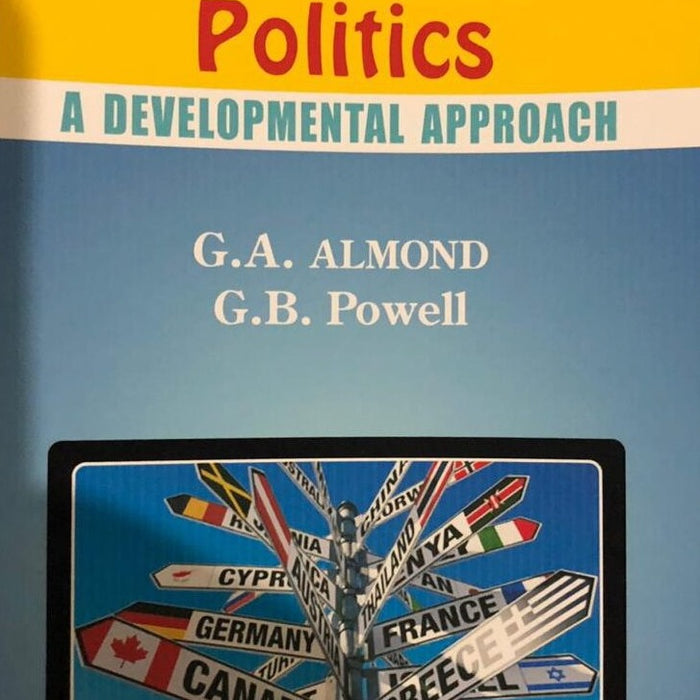Comparative Politics a Developmental Approach
- Publisher: POLITICAL SCIENCE
- Availability: In Stock
- SKU: 10874
- Number of Pages: 350
Rs.400.00
Rs.600.00
Tags: Analytical Tools , Authoritarian Regimes , best books , Best Selling Books , buy online books , Citizen Participation , Civic Engagement , Comparative Analysis , Comparative Framework , Comparative Government , Comparative Methodology , Comparative Policy , Comparative Research , Comparative Studies. , Contemporary Debates , Cross-National Analysis , Cultural Contexts , Decentralization , Democracies , Democratic Institutions , Developmental Approach , Emerging Economies , Empirical Evidence , G. Bingham Powell , Gabriel A. Almond , good books , good books online , Governance , Governance Models , Historical Legacies , Interconnected World , Largest Online Bookstore in Pakistan , latest books , Municipal Governance , online books store , online bookstore , onlinebooks , Policy Analysis , Political Analysis , Political Change , Political Development , Political Dynamics , Political Evolution , Political Landscape , Political Reform , Political Science , Political Sociology , Political Structures , Political Systems , Political Theory , Public Administration , Socioeconomic Conditions , State-Building , Theoretical Perspectives , Theory Application
"Comparative Politics: A Developmental Approach" by Gabriel A. Almond and G. Bingham Powell offers a comprehensive exploration of political systems and their evolution across different societies. Through a developmental lens, the authors delve into the intricate dynamics of political structures, institutions, and behaviors, shedding light on the factors that shape their formation and transformation over time. This book navigates through the complexities of comparative politics, analyzing how historical legacies, cultural contexts, and socioeconomic conditions influence the trajectory of political development in diverse nations.
The authors employ a meticulous approach to comparative analysis, drawing insights from a wide range of case studies to elucidate patterns and variations in political development. By examining the experiences of countries at different stages of development, from established democracies to emerging economies and authoritarian regimes, Almond and Powell offer readers a nuanced understanding of the dynamics driving political change. Through this comparative framework, readers gain valuable insights into the underlying processes that shape the political landscape, from the consolidation of democratic institutions to the challenges of state-building and governance in diverse contexts.
Furthermore, "Comparative Politics: A Developmental Approach" engages with contemporary debates and theoretical perspectives in the field of political science. The authors critically assess competing theories of political development, exploring their applicability in different contexts and offering innovative insights into the drivers of political change. By integrating theoretical debates with empirical evidence, this book equips readers with the analytical tools to comprehend the complexities of comparative politics in an increasingly interconnected world.
Key points:
1. Comprehensive exploration of political systems and their evolution.
2. Analysis of historical legacies, cultural contexts, and socioeconomic conditions shaping political development.
3. Comparative analysis using diverse case studies to elucidate patterns and variations.
4. Engagement with contemporary debates and theoretical perspectives in political science.
5. Integration of theoretical frameworks with empirical evidence for a deeper understanding of political dynamics.
════ ⋆★⋆ ═══
Writer ✤ Gabriel A Almond, G Bingham Powell
























